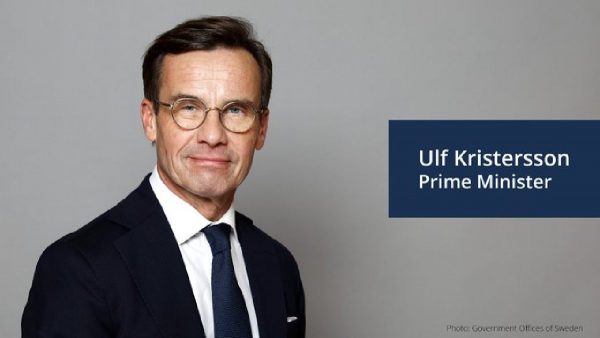Sweden’s center-left Prime Minister Magdalena Andersson on Wednesday conceded defeat in a weekend election while the leader of a nationalist anti-immigration party declared victory for his right-wing bloc.
Jimmie Akesson, leader of the populist Sweden Democrats, said his party would be “a constructive and driving force in this work of rebuilding safety in Sweden. He said it was time to put Sweden first.
With almost all votes counted, the right-wing bloc of four parties that includes the Sweden Democrats the country’s second-largest party appeared to have won a thin majority in parliament. Though a few votes were outstanding they were not enough to sway the final outcome.
Prime Minister Andersson said that the the preliminary result is clear enough to draw a conclusion that her center-left forces had lost power.
Andersson became Sweden’s first female prime minister last year and led the country in its historic bid to join NATO following Russia’s invasion of Ukraine.
The Sweden Democrats party was long shunned by Swedes because of its roots in the neo-Nazi movement. In recent years it has moved into the mainstream by expelling extremists and gained support with a tough stance on crime and immigration amid a rise in shootings and other gang violence.
The result leaves the right-wing bloc with 176 seats in the 349-parliament, the Riksdag, and Andersson’s center-left bloc with 173 seats.
PM Ulf Kristersson’s Moderates will form a centre-right coalition with the Christian Democrats and the Liberals.
But it will govern with support from the Sweden Democrats (SD), who won a fifth of votes in recent polls.
Tougher immigration policies and greater police powers are part of a policy deal with the SD.
Mr Kristersson’s three-party coalition government has also pledged to cut taxes and cap benefits.
SD leader Jimmie Akesson said the new government would mark a “paradigm shift” in immigration policy, which will be made up of “order, reason and common sense”.
The SD was founded by Nazi sympathisers and had been shunned by the mainstream for decades.
But a focus during the election campaign on issues around immigration and violent crime have put the SD’s agenda at the heart of mainstream Swedish politics like never before.
Swedish media outlets described this year’s election campaign as one of the ugliest in history. A sharp rise in gun violence and gang crime led to opinion polls suggesting that crime was at the top of the agenda for many Swedes.
Founded in 1988, the SD struggled for two decades to win enough votes to elect any MPs at all. But since entering parliament in 2010, the party has increased its share of the vote in three successive elections and is now the second-largest party.
The four right-wing parties appear to have received just under 50% of the votes in the election, and in the Riksdag, they have gained one or two mandates. A thin majority, but it is a majority,” Andersson said. “Tomorrow I will therefore request my dismissal as Prime Minister and the responsibility for the continued process will now pass to the Parliament speaker and the Riksdag.




